UW-Madison
-
UW–Madison virologists are at the forefront of efforts to keep tabs on avian influenza in dairy milk
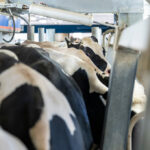
August 18, 2025
When H5N1 avian influenza made an unprecedented jump into dairy cattle in early 2024, the development prompted concern on multiple fronts. How would herds with infections fare? Would dairy workers be at risk? Could the virus potentially infect consumers through milk and other dairy products? Led by a team of virologists at the Influenza Research […]
-
UW-Madison professor emeritus who paved the way for at-home colon cancer testing and other screenings earns national recognition
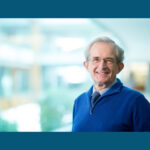
July 30, 2025
Millions of Americans have completed the at-home Cologuard screening test for early signs of colon cancer. Among the first people to thank for the widely accessible, potentially life-saving tool is James Dahlberg. The University of Wisconsin–Madison professor emeritus of biomolecular chemistry combined basic science discoveries with an entrepreneurial vision that has brought several types of […]
-
UW-Madison biochemists engineered a poplar tree that produces a high-demand industrial chemical

July 14, 2025
Brian Fox, the Marvin J. Johnson Professor in Fermentation Biochemistry at the University of Wisconsin–Madison, tinkers with the way living things use chemistry to turn their own blueprints, DNA, into the processes that make a healthy organism go. Over more than three decades, federal agencies including the Department of Energy, National Institutes of Health and […]
-
UW-Madison researchers develop personalized cancer vaccines that slow tumor recurrence in mice
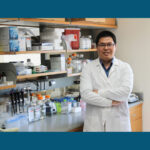
July 7, 2025
Using a newly discovered byproduct of dying cancer cells, University of Wisconsin–Madison researchers are developing personalized vaccines that could help keep aggressive tumors from recurring. Led by Quanyin Hu, a professor in the UW–Madison School of Pharmacy, the research team has already found success slowing the recurrence of tumors in mouse models of triple negative breast […]
-
UW–Madison researchers find hidden genetic clues upping cardiovascular disease risk
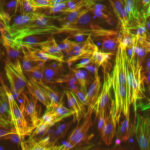
June 20, 2025
Researchers at the University of Wisconsin–Madison have uncovered new evidence in a decades-old genetic mystery, discovering how a group of genetic variations in a long-mysterious region of the human genome can put people at higher risk of cardiovascular disease. Thanks to past studies of the whole human genome that drew associations between particular variations and […]
-
The growth of esports at UW–Madison
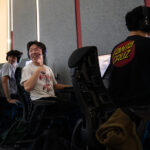
June 9, 2025
While esports isn’t usually the first thing that comes to mind when you think of athletics, there are a lot of skills that you need to be a good esports athlete. “There is a big mental aspect of esports, but part of it is just mechanical skills, like how well you aim and stuff,” says […]
-
App under development at UW-Madison could make it easier, more affordable to ‘age in place’

May 13, 2025
University of Wisconsin–Madison researchers are using augmented reality to make the homes of older adults safer. Their innovation will not only streamline a sometimes clunky process but also support a more affordable and community-based approach that can reach more people. It’s an urgent issue: Older adults in Wisconsin have the greatest chance of death after a fall. […]
-
UW-Madison startup Ubicept secures $1 million investment in TitletownTech Startup Draft

April 28, 2025
Madison, WI – Ubicept, a company with its foundational technology developed at University of Wisconsin-Madison and the Massachusetts Institute of Technology, has been selected as one of two winners in the inaugural TitletownTech Startup Draft, securing a $1 million investment from the Green Bay–based venture capital firm. According to TitletownTech, “the TitletownTech Startup Draft, launched […]
-
Bucky’s Tuition Promise makes college dreams come true for Wisconsin families

April 23, 2025
As students arrive for the school day in Mackenzie Straub’s third-grade classroom in Fish Creek, Wisconsin, they check in on a large, interactive screen that includes a photo of their teacher and another notable: Bucky Badger. It’s a nod to Straub’s fond feelings toward her alma mater, the University of Wisconsin–Madison. Straub earned a bachelor’s […]
-
For the Love of a Pet

April 8, 2025
A UW veterinary clinic provides affordable care for owners experiencing hardship One thing you notice about WisCARES is the kindness. It’s a place where happiness abounds, even among some of life’s most unhappy circumstances. In a sparkling-clean silver cage, a black kitty rears up like a tiny lion, front paws in the air, jostling a shiny pink ball […]
